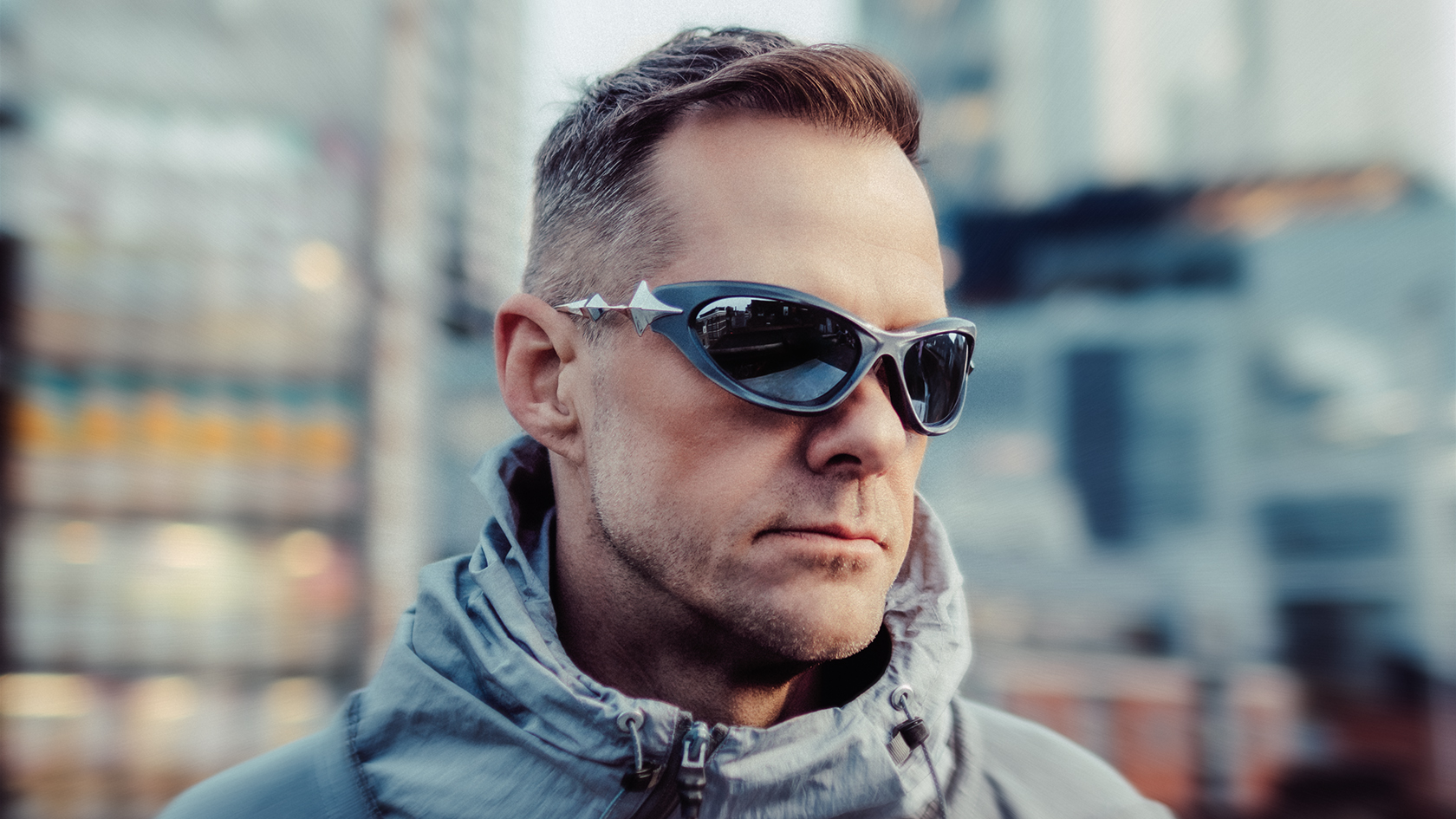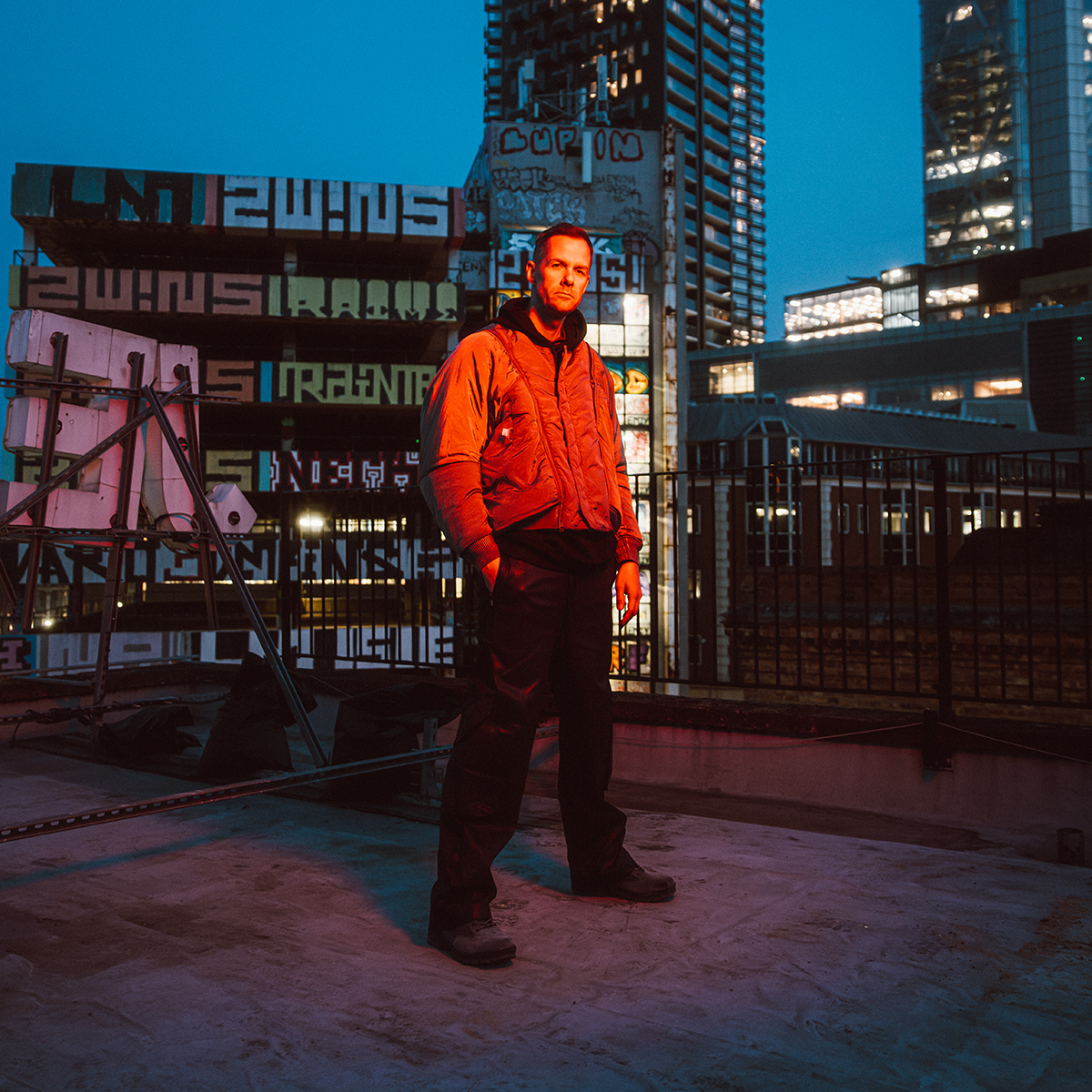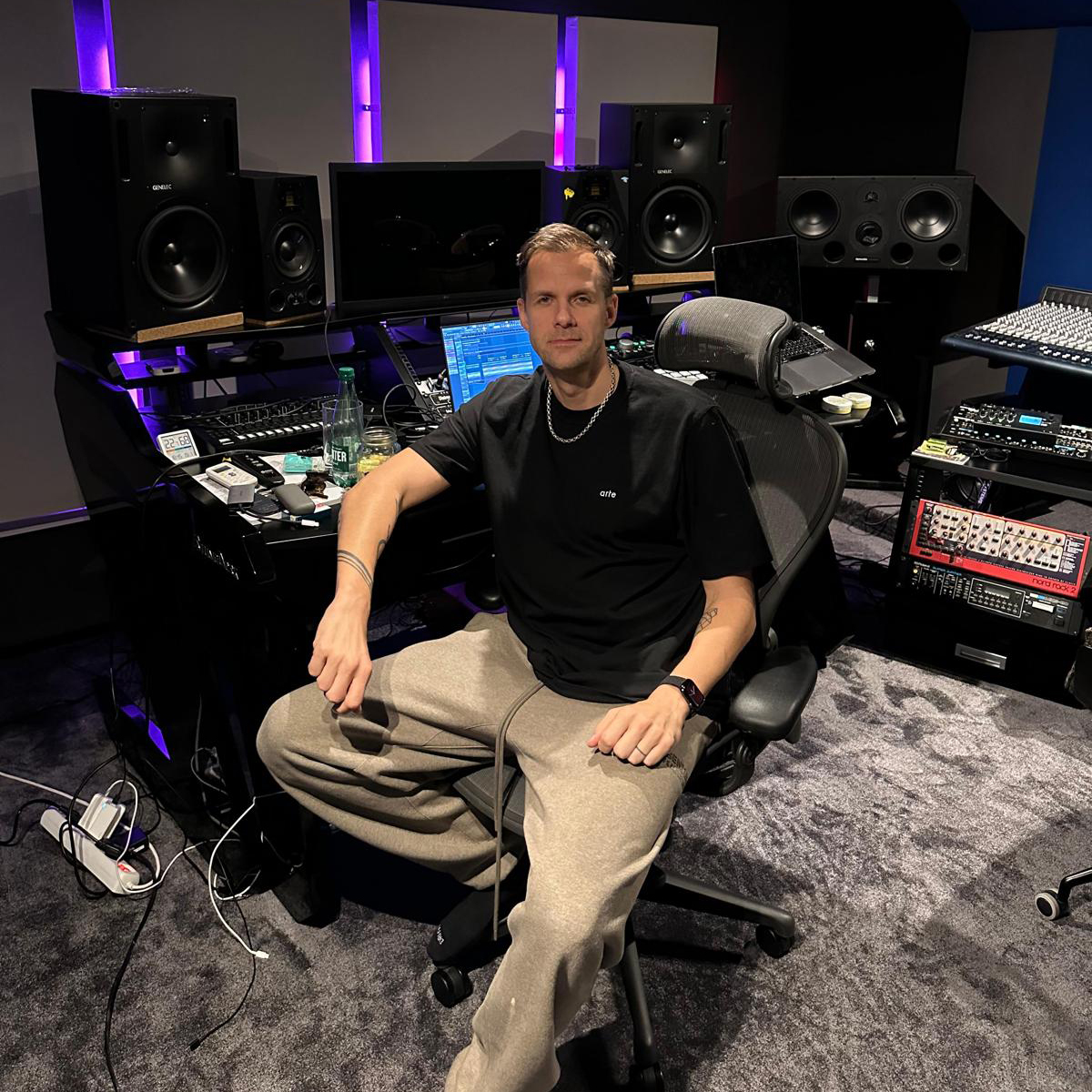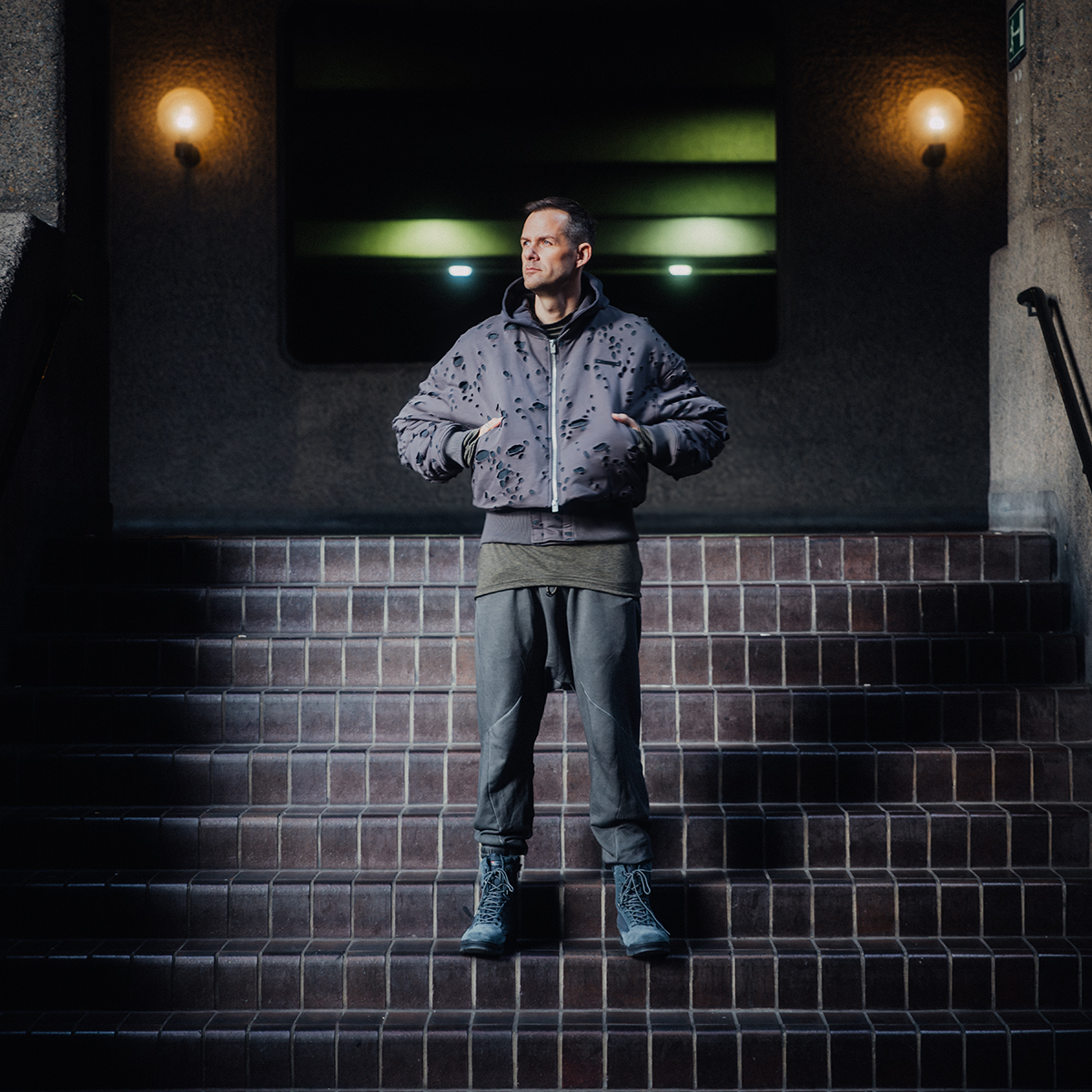
As a pioneer of global techno and founder of the iconic Drumcode label, Adam Beyer was a relentless force in the ‘90s and early ‘00s, before becoming a sought-after DJ performing at major clubs and festivals around the world.
As a result, releases became more infrequent as Beyer focused on honing his talents behind the decks and raising his three daughters. In 2013, he turned his attention to the phenomenally successful Drumcode Live weekly radio show - at one point attracting a weekly audience of 11 million.
Thankfully, Beyer found the time to record again during the pandemic, initially developing an album outside of his usual techno-centric style that remains unreleased to this day. However, the revitalised producer continued to refine his technique in collaboration with others to produce his first album in 20 years, Explorer Vol. 1.
Distilling decades of evolution into a bold, cinematic and genre-bending statement, the LP draws influence from sci-fi, breakbeat, melodic techno and Afro house, boldly exploring a new frontier in Beyer’s creative journey.
We recently read that you’ve “finally ended up where you were trying to get to”. What specific aspirations do you feel you’ve achieved?
“I probably meant that I'm playing the shows that I want to play and in a comfortable spot doing exactly what I want as an artist. Over the last couple of years, I've also managed to start producing more again. Previously, it was scattered because I had small kids and was DJing a lot, so my productions took a hit for a while.”
What's your view on techno culture and how it’s evolved over the past few decades?
“It's a tricky question that a lot of people are asking themselves. The beauty of real techno is that there's hopefully always going to be an underground scene that’s free from the expectations or boundaries that other music has. Am I part of that scene? I’d say no - I've transcended into the bigger festival scene and produce a more modern form of techno that has taken a slightly different route.
“But it really comes down to who you ask. If you zoom out, there’s still a real techno culture in parts of the world like Berlin, but the Gen Zs are probably less connected to it. From a festival perspective, not a lot of real techno gets booked anymore, which is largely because of social media culture and all the things that electronic music has become.”
Obviously, the word techno is related to technology, but does gear have the power to invent genres in the way that it used to?
“If we talk about real techno, I’d say it’s largely comprised of drum machines and synthesizers, so that hasn't changed. Of course, there are various new technologies coming out all the time, but the biggest changes we're now facing are things like Splice libraries and AI entering the production field.
“With sample libraries, you can easily get hold of well-produced stems that are not from a genre you're familiar with and start incorporating things like vocals into techno, which I see as a positive and a negative. The positive is that you get cross-pollination between genres, which I think is necessary to move forward and come up with new ideas, but creativity goes down because anyone can use anything from anywhere without having the skill set or ideas to make something sound unique.”
Is it necessary to prioritise ideas over technology?
“Having a purpose and an intention goes a long way when it comes to art in general. Today, a lot of DJs see production more as a marketing tool. In the past, there were fewer people producing because you didn’t have the means to do it - they took their time to learn their craft starting with a minimal amount of equipment and understood it thoroughly until the ideas came through.
“Half of the production would take place in your head because you had a vision and, to this day, the best records are still made by people who have an intention or idea at the bottom of things.”

Your last studio album was released over 20 years ago. To what extent did you become less interested in expressing yourself through that format?
“When I made Ignition Key in 2002 I was in my mid-20s, didn't have any children and was on top of my game. Production and DJing were my life and I was with a group of people in Stockholm that were all doing the same thing.
“Back then, I was immersed in my studio and there every day, but in the space of ten years I had three daughters, so it was hard to focus, especially as I kept DJing and was away every weekend. It wasn't like I stopped making music, but I didn’t have the same flow or intensity as I’d had before, and also started experimenting away from the Drumcode sound for a while.”
So why return to the album format after all this time, especially when dance music is heavily oriented towards 12”s and EPs?
“During Covid I made a conscious decision to spend more time catching up and learning all the plugins again. That was something I’d followed, but hadn’t been spending hours and hours on to deepen my knowledge.
“I actually made a whole album, which was not really techno at all - there was a vocalist and another girl here from Ibiza who's more into ambient music. I guess you could compare the project to Underworld or something along those lines, but I pulled the plug when I realised how much work it would take to get it out into the world.
“In the end, I thought it would probably do me more harm than anything, because I wasn’t convinced that my fans would resonate with it. It's a cool album, but I think I made the right decision. Simultaneously, I was making more techno and released songs like Desert Queen and some big EPs, but also had other songs that didn't seem to stand on their own as singles, so I thought let's make an album without overthinking things so much this time.”
What made this album releasable?
“Maybe I played it a bit safer. It’s more in the Drumcode format, while taking influences from other genres and trying to create something that reflects who I am as a DJ.
“I also tried to find some middle ground between it being retro-influenced and a new format, realising that if I kept pulling the plug or trying to make some sort of grand, amazing piece of work it might never come to anything anyway.”
Are you still a fan of the album format itself?
“I love the album format and think Explorer Vol. 1 is a little bit of a statement because, like you said, a lot of people are so focused on releasing singles now that it’s become all about having to make a hit and create a Spotify version that’s two minutes and fifty seconds long, blah, blah, blah. I still feel a bit intimidated by that whole way of thinking because it takes away from electronic music.
“You can call me old-school, but you have to draw the line somewhere and I feel that we need to preserve some of the art in our scene. Because of that, I kept all the edits to four minutes for Spotify, which goes away from the streaming ideology, but I don't care - I just wanted to put this music out as it was.”

Have you found that your production methodology has changed significantly over the years?
“It differs from track to track, but I usually find that the best way to start is with a hook or an idea, whether it's a vocal or a sequence. These days, I make a lot of sketches just wearing headphones and working on my computer. Sometimes I make full tracks, other times I’ll work with an engineer and go to a studio to finish things off.
“I've found that the writing part is something I really enjoy and can do, but the production and mixing has become so advanced that I need help to execute it with 100% perfection. But the way I start my tracks is similar to the way I always did - I’ll search for samples and sounds, put everything into a folder in the DAW and then start spacing things out, make a groove and go from there.”
Is Ableton your choice of DAW?
“Throughout the ‘90s and early ‘00s I was using Cubase with the Atari and MIDI, but then I began working with Dave Robertson from Reset Robot and he was using Reason. I found Reason to be quite back-to-basics - it didn't even have third-party plugin integration at the time, so it was limiting but using it felt similar to my MIDI studio background. I started to love Reason, because you can pretty much do anything that the other DAWs can and still use Logic and Cubase for different purposes.”
You used to have a shedload of hardware, but your studio now appears more streamlined?
“A lot of people chucked all their stuff out, but I still have a studio here in my house in Ibiza and kept some of my hardware. I guess the biggest piece of all is the Moog One and I find the hands-on experience of touching the knobs and going more by feel is fun and less static.
“The reason I use hardware is for the random factor – when you twist knobs with two hands you can make sounds, experiment with sequences and automate stuff that’s moving. For me, using hardware has always been about creating random coincidences, but because I don’t always have the time to do that the album is mostly a mixture of software and hardware.”
The opening track, Silent Mapping, sees you collaborate with film score composer Coco Francavilla. How did that union come about?
“Coco and I met at our children’s schoolyard. She knew who I was, invited me to come to her studio one day and was actually a vital part of the album that never got released. I like it when a story has a beginning and an end, and it feels natural to open an album that way and bring people into a vibe. Since Coco has a studio in Ibiza, is a genius with hardware and makes film scores and movie trailers, including the latest Blade Runner, I knew she could help me get that sense of tension and drama.”

There are a lot of vocal collaborations on the LP, which isn’t something you investigated when you first started. Does that speak to your willingness to share ideas now?
“I love it when you get sent a half-ready track or have an idea and don't know where to go with it, so you send it to someone to add their signature. For example, the single Hypnotic was first recorded with Kyozo as a tech house tune, but I thought his vocals were so good that we could make something even better out of it. In the end, I sent it to HNTR and it came back as more of a techno version.”
Having lots of collaborators and styles enables you to reach more people through Spotify’s various algorithms. Is that something you’re adapting to?
“I try to accept changes whether I like them or not, because it's the reality. If you want to be in the game, you sometimes have to play it and I guess it took us a little while to figure that out with Drumcode.
“You can reach a lot further with your music now because, back in the day, you could sell 3,000 hard copies but now you might have millions of streams. In the past, music was more territorial and exclusive to those that could afford vinyl, or even had a store in their town where they could buy it.”
Is there anything you miss about the past?
“I feel that music today is more gentrified and all has a similar volume and perfectly mixed sound until, in the end, it becomes one big mass of the same thing. When you went record shopping 20 years ago, everything sounded completely different, but now it feels like there’s a blueprint of how to make electronic music that’s been set in stone and it becomes boring. It's scary, but eventually you'll be able to pretty much write a track by telling your DAW what you want rather than actually making the music yourself.”
As the LP is titled Explorer Vol. 1, presumably Vol. 2 is ready to go at some point?
“That's the idea. I still have some stuff that didn't make it on to this album for one reason or another, but I also want to sit back and have a little think because Vol. 1 probably has too many tracks. Producing is almost like a rebirth for me, and that's how I want to approach it.”
You’ve got five kids of varying ages. Are they embracing the world of techno or more captured by commercial pop?
“We live in Ibiza, so they hear electronic music everywhere and grew up with it. For them, the excitement that I felt when I discovered electronic music and the rebellious feeling it gave me isn't a thing, but I wouldn't say they listen to techno.
“My three girls like Tyler, The Creator and are massive Billie Eilish fans, which is commercial pop but she has a very artistic expression and at least writes some of the music. I think she's a good role model for women today, so I'm quite happy for her to be the big idol in the house.”







